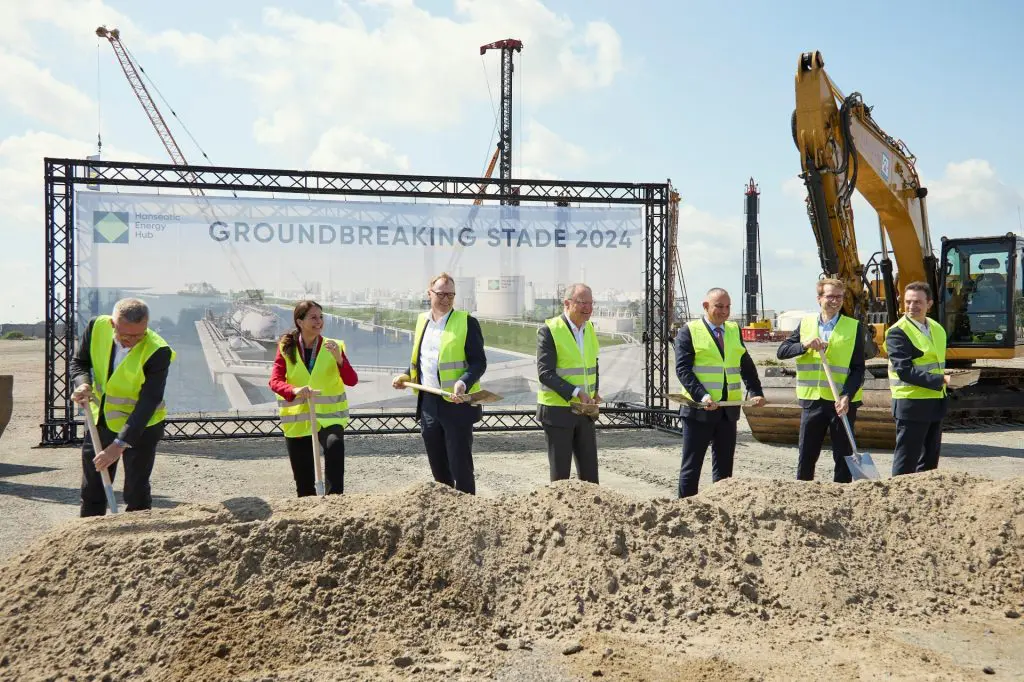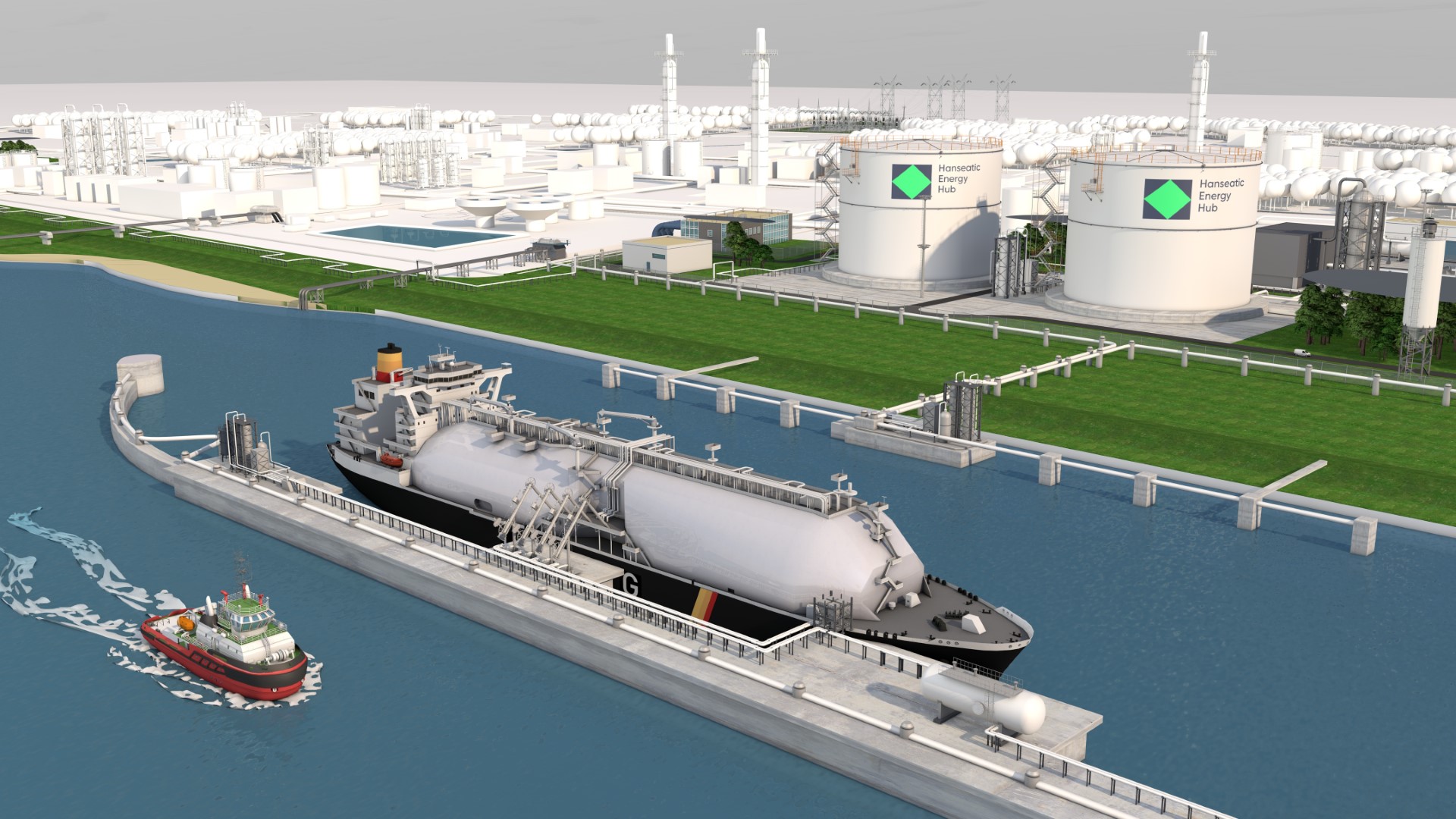Germany’s Hanseatic Energy Hub has officially started building its Stade LNG import terminal near Hamburg worth about 1 billion euros ($1.07 billion). This is Germany’s first onshore LNG terminal.
According to a statement by HEH, the groundbreaking ceremony for the LNG terminal took place on Friday. Around 200 partners and backers attended the ceremony.
In March, HEH’s shareholders Partners Group, Enagas, Dow, and Buss Group took a positive final investment decision on the project.
HEH awarded the engineering, procurement, and construction deal for its Stade LNG import terminal to a consortium led by Spain’s Tecnicas Reunidas and its partners, FCC and Enka.
More than 1,100 people will be working on the construction site at peak times so that the two 240,000-cbm LNG tanks can be connected to the grid in three years’ time, HEH said.
To make the LNG terminal a reality by 2027, workers will have to drive around 4,600 piles into the ground, HEH said, adding that the foundation is already statically designed to allow a subsequent conversion to ammonia.
In addition, for the terminal more than 60 thousand cubic meters of concrete will be poured, the equivalent of around 20 Olympic swimming pools, while almost 11,000 tonnes of structural steelwork will be erected, weighing 1.5 times as much as the Eiffel Tower, it said.

EnBW, SEFE, and CEZ
The LNG terminal will have a total capacity of 13.3 billion cubic meters of natural gas per year.
HEH said that 90 percent of this volume has been booked long-term, while the remaining capacity is reserved for short-term bookings.
Besides the two German energy suppliers EnBW and SEFE, which have respectively booked annual capacities of 6 and 4 bcm at the terminal, also the Czech energy company ČEZ has secured long-term import rights for 2 bcm.
All customers have the option to switch their contracts to hydrogen-based energy sources, such as ammonia, as part of the energy transition in their home countries, HEH said.
Once the LNG terminal enters into service, the FSRU Energos Force, chartered by Germany’s federal government, will set sail from Stade.
The 174,000-cbm FSRU, which has arrived in Stade in March, will “continue to secure the gas supply in the short term until the more efficient land-based terminal is completed,” HEH said.
Germany’s state-owned LNG terminal operator DET expects to receive the first cargo at its FSRU-based LNG import terminal in Stade in the second half of this year.

